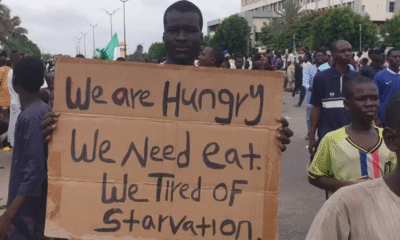More in Latest News
-


Latest News
President Tinubu Grants Clemency to 34 Individuals — List of Names Released
A fresh list of individuals granted clemency by President Bola Tinubu has been released by the...
-


Latest News
NDLEA Conducts Raid on Pretty Mike’s Lagos Club, Detains Tuoyo From BBN And 100 Others
The National Drug Law Enforcement Agency (NDLEA) recently carried out a raid on Pretty Mike’s popular...
-


Latest News
Nigerians Protest In Abuja, Demand Urgent Action On Poverty, Hunger And Economic Hardship
Citizens march in Abuja, calling for food security, jobs, social protection and end to systemic poverty...
-


Latest News
ASUU Announces Two-Week Nationwide Strike Starting Monday
The 14-day ultimatum that the Academic Staff Union of Universities (ASUU) had previously given to the...
-


Latest News
Breaking News: Minister of Science and Technology Geoffrey Nnaji Resigns Over Forgery Allegations
In a recent development, President Bola Tinubu has accepted the resignation letter of Minister of Science...



